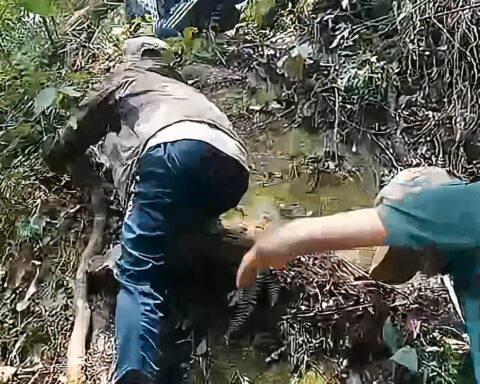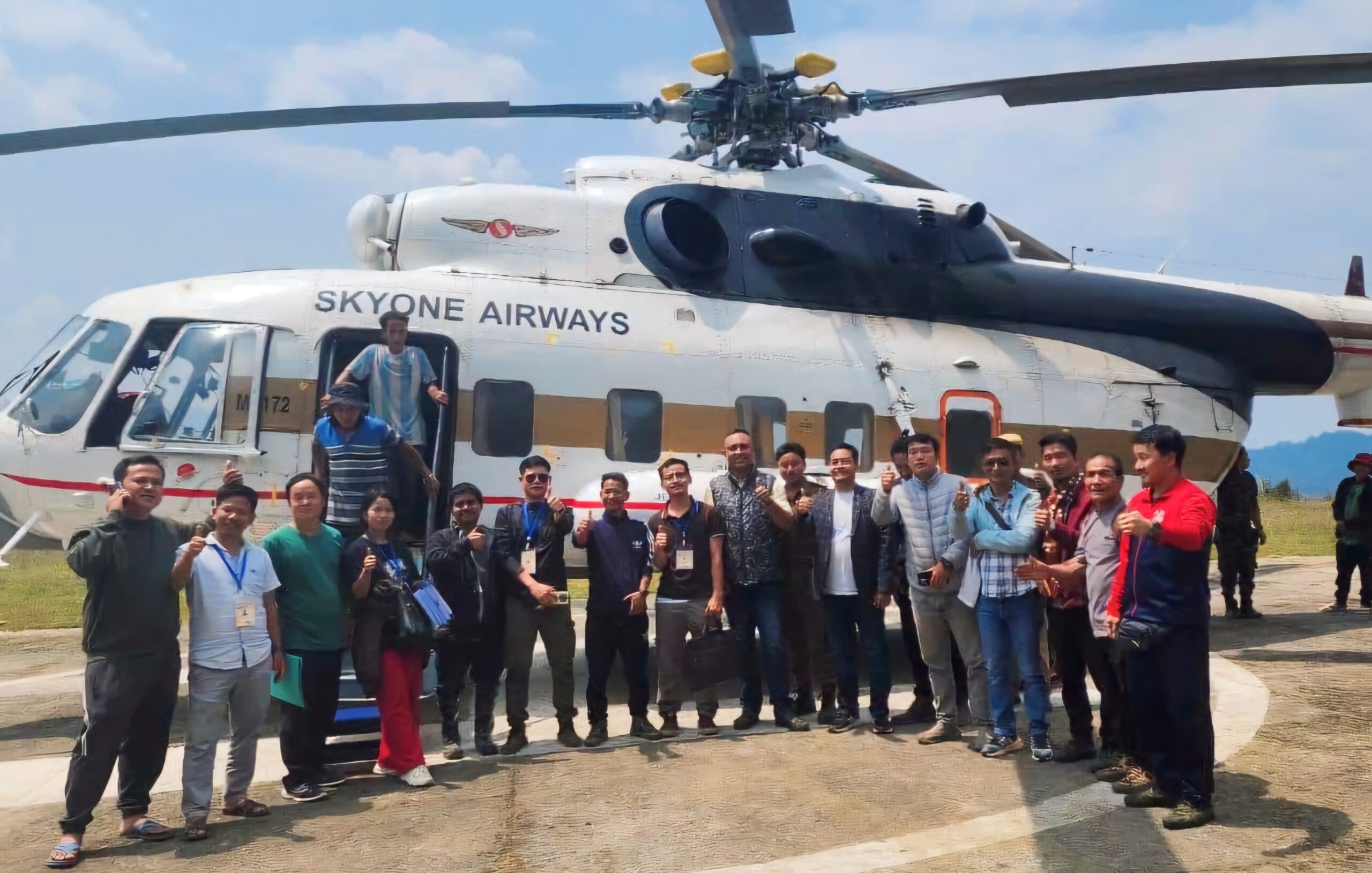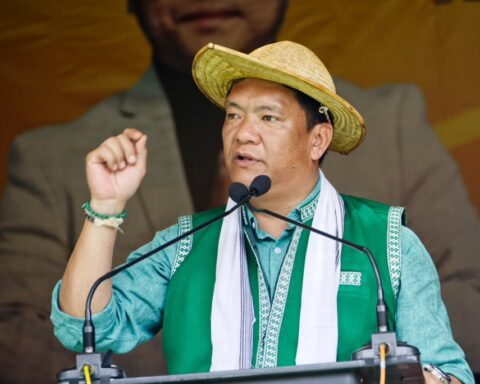Itanagar: Arunachal Pradesh deputy chief minister Chowna Mein, who also holds the finance portfolio, on Monday presented state budget with a fiscal deficit of Rs 644.81 crore.
While presenting the budget, Mein said that the budget is built on the six building blocks of learning from the Covid-19 pandemic including governance reform and prudence financial management, sustained investment in the health sector, continued investment in human capital, emphasis on Atma Nirbhar Arunachal, synergy and convergence, and environment protection and climate resilience.
The minister said that these building blocks are very carefully crafted to make the state ready for the future.
He also said that beside these six blocks, the state government will be emphasizing on preservation of culture and indigenous faith and many projects have been taken up in this regard in this budget.
He added that the philosophy of this year’s budget was ‘no citizen left behind’.
Mein said that the government is sensitive to the needs and aspirations of the people and remain inclusive for all-round development of the state to reach the last citizen.
No new taxes have been introduced this year.
The state government projected total receipts of Rs 26,111.63 crore for the next financial year, which is 15.64 per cent higher than Rs 22,581 crore estimated in the 2021-22 budget, he said.
”In the budget estimates of 2022-23, we are projecting revenue receipts of Rs 24,253.54 crore and capital receipts of Rs 1,858.09 crore,” Mein said.
“We have tried to assimilate our collective experiences from the Covid-19 pandemic in this budget as building blocks so as to make Arunachal future-ready,” the deputy CM said. He also mentioned that the state’s share of central taxes has been pegged at Rs 14,348.54 crore as per the Union Budget 2022-23.
“It is ten percent more than the revised estimates of 2021-22. In addition, we have projected state’s own tax revenue at Rs 2,090 crore while the non-tax revenue has been estimated at Rs 935 crore,’ Mein said.
The state’s own revenue generation is estimated at Rs 3,025 crore for 2022-23 fiscal, which is a ten percent increase over the revised estimate of 2021-22, the finance minister said.
The government projected a revenue expenditure of Rs 18,201.55 crore for FY 23, as against the budget estimates of Rs 15,344.32 crore in 2021-22.
Mein also said capital expenditure, including loan components, was estimated at Rs 7,507.81 crore in the next fiscal as compared to Rs 6,968.68 crore in the current financial year.
“The focus of the government has been and will be on increasing capital expenditure to create socially and economically productive assets for accelerated development of the state,” he said.
For FY23, the state government was able to keep the fiscal deficit at an estimated 2.20 per cent of Gross State Domestic Product, “which is not only within the norms of targets laid down in the Arunachal Pradesh Fiscal Responsibility and Budget Management Act 2006 but also at almost the same level as BE (budget estimate) 2021-22,” he said.
The deputy chief minister said the government has declared FY23 as ‘Year of e-Governance’ under which 22 projects would be taken up.
“With a focus on improving quality education, infrastructure is being developed in institutions. The expenditure on the sector is 11.34 per cent of the total plan outlay,” he said.
The government is also upgrading 18 district hospitals in the state with an amount of Rs 250 crore, Mein said.
Sixty identified primary and community health centres will be upgraded to model facilities.
Under the “Atma Nirbhar Arunachal Pradesh” programme, several initiatives in agriculture, plantation, animal husbandry and fishery will be initiated with Rs 310 crore as front-end subsidy, which would generate a consequential investment of Rs 650 crore in these sectors, Mein said.
“Arunachal emerged as the first state in the country to affirm its commitments on climate change responsive and resilient actions through the ‘Pakke Declaration’,” he said, adding that the state government has initiated carbon credit trading from this year.
The ‘Pakke Declaration’ is aimed at “climate-resilient development” in the state.
The state government has taken up a comprehensive project to strengthen infrastructure in border villages to address the issue of migration to urban areas.
“We have submitted a Rs 4,000-crore proposal to the Union Home Ministry as part of the plan. The project aims at building roads, health centres and educational institutions, besides electrifying villages, and augmenting water supply,” Mein said.
He also proposed an allocation of Rs 25 crore for integrated development of border villages over and above normal allotments under the Border Area Development programme. (With PTI inputs)





